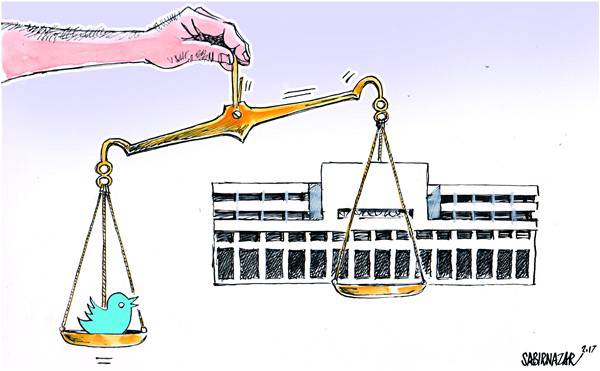
Workplaces
Sir,
Rampant corruption, nepotism, misuse of power and mishandling of resources has led the country into troubled waters. Senior workers are awarded with increments and bonuses while juniors and the most-deserving ones who work diligently and burn the midnight oil are ignored. This leads to a lack of interest in work.
Self-aggrandizement is common; only sycophants enjoy perks. Hiring and promotion take place on the basis of political affinity; procedure and performance are ignored. This is why young people leave to work in foreign countries. Backstabbing and demotivation must be tackled at the workplace.
Deserving young professionals must be given a good working environment and opportunities to grow and flourish. There is a dire need for an egalitarian approach because the country cannot become an Asian tiger if these discrepancies, impediments and barricades are not removed.
Haider Ali,
Lahore.
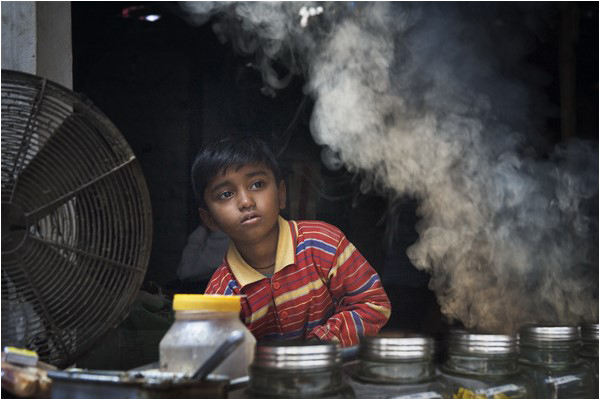
Child labour
Sir,
Children are a great asset and the future of our country but child labour is a cancer to our nation. It is estimated that one quarter of Pakistan’s workforce is made up of children and many of them are forced to work in hazardous environments. The main causes of child labour are poverty and a lack of awareness about the importance of education. Parents also want their children to work from an early age.
We have laws and regulations but they are not followed and no government authorities take action. The government should help poor families with stipends if they cannot afford an education for their children.
Neha Zuberi,
Karachi.
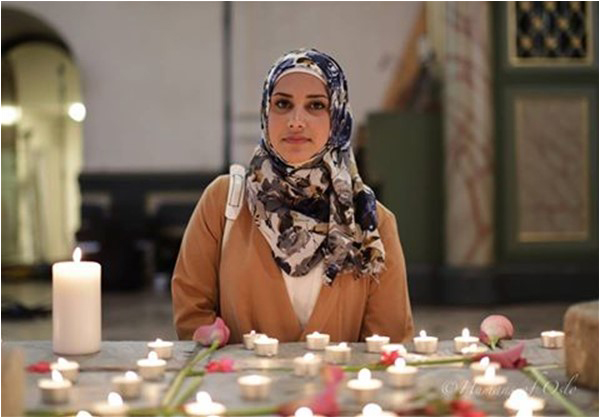
Muslim unity
Sir,
Today Muslims all over the world are in a state of utter disarray and chaos. We see grim and dismal signs of decay, decline and degeneracy. What is the reason behind this? Allah (SWT) said: “Hold on to rope of Allah and do not divide.” The rope of Allah is the Holy Quran. As long as Muslims have the Holy Quran and Sunnah as the sole sources of guidance, they enjoyed primacy in every walk of life, but when they stopped following the word of God, their decline started.
Muslims are living in nation states which are formed on the basis of language and ethnicity. These Muslim countries have fought bloody wars with one another; many Muslims countries have strained relationships with one another. It is as if Islam is no longer working as vital bond to knit Muslims together as one single, homogenous body.
To make matters worse, sectarian wars have erupted in Muslim countries. In the Middle East and in Pakistan people are being killed merely on the basis of sect.
Another threat tearing the Muslim Ummah apart is the rise of radicalism. Extremist hardline jihadist Muslims have taken up guns against their own governments. Muslims are at each other’s throats, forgetting the vital lessons of Islamic unity and brotherhood.
Islam is a symbol of unity, faith, discipline. Western countries are at the peak of progress in science and technology because they linked with each other in true spirit of unity and unity leads to progress.
So, let us all go back to the teachings of the Holy Quran and we will regain our erstwhile glory and power.
Muhammad Abdullah,
Student of Air University,
Islamabad.
Energy crisis
Sir,
An energy crisis is any great shortfall (or price rise) in the supply of energy resources to an economy. It usually refers to the shortage of oil and additionally to electricity or other natural resources. “The country may face an energy crisis by the year 2007 following healthy growth of 13 per cent in electricity demand during the last quarter, which will erode surplus production in absence of commissioning of any new power generation project during this financial year,” according to a report published in The Nation. The report maintained that the difference between firm supply and peak demand is estimated at 5,529 MW by the year 2009-10 when supply will stand at 15,055 MW against peak demand of 20,584 MW. The country needs a quantum jump in electricity generation in the medium-term scenario to revert the possibilities of load shedding in the future.
Abdullah Hafiz,
Karachi.
Mobile phones
Sir,
It is common to see people using their mobile phones while driving but it is dangerous due to its potential to distract and cause accidents. This not only endangers the driver’s life but that of those around them on the road. It is really common in Karachi, though almost everyone acknowledges that using mobile phones while driving is dangerous. I request the authorities to make sure that no one uses their mobile phone while driving and if they are caught they should be penalized.
Ailya Kazmi,
Karachi.

Cybercrime & FB
Sir,
Facebook is a social media powerhouse and it is becoming an increasingly important way of obtaining information not only about friends and family but also about world events. At present, misuse of this social media has spread unrest among its users, and the major problems are hacking and blackmailing.
Hacking is not an activity. It is a crime as the hacker uses someone else’s account without their consent, reads private chats, misuses his/her pictures and documents. It is illegal and falls under cybercrime that could put one in prison and lead to fines.
These immoral and shameful activities do not suit civilised and sensible citizens. Civil society activists, educators and teachers should play a crucial role in assisting young people in learning how to use this new technology effectively and productively.
Komal Kanza,
Karachi.
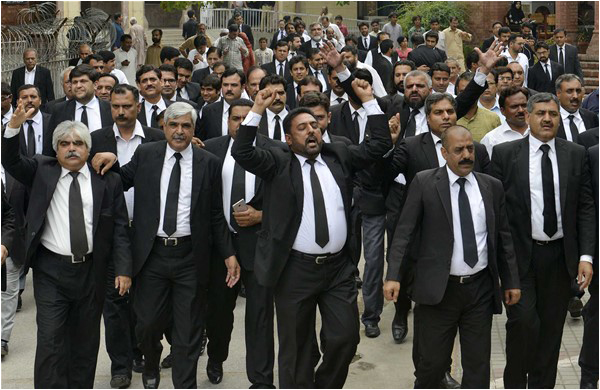
Prosecuting prosecutors
Sir,
Prosecutors in Pakistan are able to cover their wrongdoings and negligence in the courtroom behind the shield of immunity, but they should have no such shield from the public eye. Most unskilled prosecutors are never brought to justice, thanks in large part to the law of Sindh Criminal Prosecution Service Act 2009 and Punjab Criminal Prosecution Service Act 2006, which holds that prosecutors cannot be sued for negligence and for violating a citizen’s fundamental rights enshrined in the constitution of Pakistan 1973, in the courtroom.
Prosecutors are granted immunity for most kinds of misconduct, from using false evidence, suppressing exculpatory evidence, intentional negligence and countless deliberate adjournments, without any fear that they will be held personally liable, even if they maliciously violate the rights of innocent people of Pakistan.
The rule of prosecutorial immunity has wide-ranging consequences; it means that a prosecutor who induces a witnesses, specially police officials appearing in the capacity of witnesses, to lie under oath, are immune from civil liabilities, hence accused persons have no legal recourse against the prosecutors. There is clear evidence that substantial numbers of innocent people have been convicted and even sent to death row as a result of prosecutorial negligence, that virtually always goes unsanctioned and unpunished.
It is unjust for a person to suffer injury as a result of malicious prosecution in legal proceedings for which there were no reasonable grounds and not be compensated for the injury. Claims under the law of tort against prosecutors are always available to defendants/accused persons. However because of justice is expensive in Pakistan, the poor cannot afford it.
In October 2016, the Honorable Supreme Court acquitted a person who was convicted of murder, however he did not live to see freedom as he died serving his sentence. In March 2017, a prosecutor in Lahore, who said he can “guarantee the acquittal of forty-two Christians charged with killing two men, if they converted to Islam”, has only been temporary suspended by the Punjab Prosecution Department, and no F.I.R. has been lodged against him, nor has the Bar Council cancelled his license for breaching the Legal Practitioners & Bar Council Act.
Ensuring that prosecutors are held accountable for breaching their ethical duties is not at all a difficult task nor does it require a constitutional amendment; it would only require the implementation of the Canons of Professional Conduct and Etiquette of Advocates and Legal Practitioners & Bar Council Act of 1973 by the relevant bar councils, ethics and disciplinary committees, and by the prosecutors general of the provinces.
Arsalan Raja,
London.
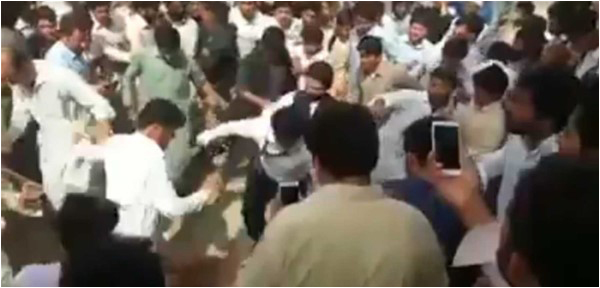
Cultural lag
Sir,
American endocrinologist Gregory Pincus occupies 82nd position in the oft-quoted ranking of the 100 most influential persons in history by Michael Hart. I am quoting this book because the author has a wide readership in the Muslim world. Gregory Pincus discovered the first oral contraceptive pill for birth control and is therefore known as ‘the father of the pill’. His discovery showed that intercourse is not only for procreation but it can be used for recreation as well. This simple breakthrough in medical technology triggered a revolution that drastically changed the behaviour of the masses cutting across all social classes and eventually all countries of the world. The social impact of the pill’s discovery is compared to other major human discoveries such as the discovery of fire, electricity and atomic energy.
In the last two decades we have witnessed an exponential increase in the numbers of smartphone users in Pakistan. Coupled with the internet, smartphones have dramatically increased social connectivity in Pakistan. These two tools have done away with distances and data flows through social media have jumped exponentially. If the technology of a pill can wreak havoc with public morality then we should not underestimate the power of modern communication technology.
The students and faculty of Abdul Wali Khan University, Mardan, on the fateful day of April 13, 2017, failed to realize the power and influence of the technological revolution in the country. If they had been smart enough, they would have understood the social impact of the new technology. If we assume that at least every second student had a smartphone with a 14-megapixel camera and a good enough battery we can assume they recorded a video of the incident. The video went viral on social media and the public outcry for justice compelled state institutions to act.
The electronic media, as always, was slow to respond. However, it took its cue from social media and later on played a positive role in further exposing the incident.
In the past, such events hardly aroused any adverse reaction from society because people depended on the pulpit, state-run TV and the vernacular press for information, enlightenment and entertainment. These traditional means of communication were monopolized by the state and clergy and if they had been the only means of dissemination today, they would have easily hushed up the matter.
However, new technologies have democratized public opinion-making as well. Everyone can express his or her opinion with a considerable degree of freedom on a wide range of issues. This aspect of social media is seldom deliberated upon. However, in the Mashal Khan case, the real-time video played a decisive role.
The recorded videos exposed the quantum of violence and obscurantism we have been inculcating in young minds for decades. The mob showed us the ugliest face of our collective being. We often boast about our peaceful credentials but this case tells us a different story. The pre- and post-mortem violence also exposed the quality of our education in general and higher education in particular. It clearly demonstrated our proclivity for violence and our obsession with instantaneous justice. It brought home the fact that before seminaries we must reform the curricula of our educational institutions.
The videos sent down chills down the spines of viewers across the world. Everyone was shell-shocked and only a few dared to watch the video in totality. The public reaction was strong enough to put the law-enforcement agencies on its toes. Our anachronistic public morality and vigilantism is no more compatible with this new era of communication technology. The strict moral confines of our society coupled with a tribal mindset are not going to survive in this era of information revolution. We need to re-assess the norms of our public morality or the new technology will remain a bane for us. This incident clearly shows a cultural lag. Every culture takes time to catch up with new technological inventions but the sooner the better. If delayed, then this imbalance between material and non-material culture becomes a social problem according to sociologist Willian F. Ogburn.
The videos and its quick dissemination not only aroused a public anger but also assisted the law-enforcement agencies in identifying and apprehending the culprits. It will hopefully determine the course of justice as well. Mobs have been fearless. However, now each and everyone can be easily identified with the help of new technology.
It is an opportune time for us to reconsider our collective behavior and cultural traits. Non-material culture will have to make adjustments to accommodate the tools of material culture. Human societies are always in flux. They cannot survive when they are static and averse to change. In a material culture nothing is definite. Therefore, the door for change is always wide open.
Dr Muhammad Ismail Khan,
Peshawar.
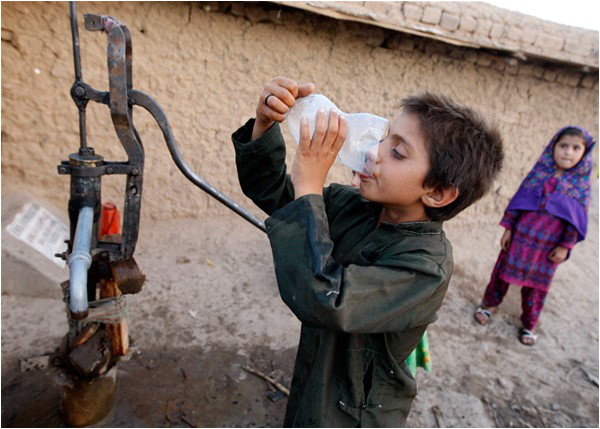
Water crisis
Sir,
“When the well is dry, we know the worth of water,” once said Benjamin Franklin. Widespread water shortages caused by rising global temperatures could lead to food shortages and mass migration, an expert has warned. The head of the World Meteorological Society, Michel Jarraud, has warned that of all the threats posed by a warming climate, shrinking water supplies are the most serious. It is predicted that by 2025, some 2.8 billion people will live in ‘water scarce’ areas - a huge rise from the 1.6 billion who do now. Parts of Africa, the Middle East and Asia will be worst affected, with pockets of Australia, the US and southern Europe also predicted to suffer.
Pakistan, one of the world’s most arid countries, with an average rainfall of under 240 mm a year, is heavily dependent on an annual influx into the Indus river system. About 180 billion cubic meters of water of the system emanate from the neighboring country and is mostly derived from snow-melt in the Himalayas. According to the World Bank, Pakistan became a water-stressed country (1,700 cubic meters per capita per year) around the year 2000. According to a government source, Pakistan reached 1,700 m3 in 1992 and became a water-short country, and then declined further to 1,500 m3 in 2002.Water scarcity (1,000 m3 per capita per year of renewable supply) is expected in about 2035.
However, a United Nations Development Programme source puts Pakistan’s current water availability as 1,090 m3 per capita per year. This is because the terms “water shortage” and “water scarcity” are often used interchangeably— while both use the 1,000m3 per capita measurement as a benchmark, “shortage” is an absolute term and scarcity is a relative concept. A report issued by Asian Development Bank stated: “Pakistan is one the most water-stressed countries in the world, not far from being classified as ‘water scarcity’, with less than 1,000 cubic meters per person per year.”
Water scarcity in Pakistan is becoming worst also because of Indian obstruction of a western river’s water. The signing of the Indus Water Treaty in 1960 was no doubt a ‘remarkable achievement’. It brought an end to the long standing dispute between Pakistan and India and it survived wars and border clashes. But at present Pakistan is very much concerned with the Indian projects on the western rivers which would allow India either to reduce the water flows to Pakistan or to release store waters and cause floods. India is building chains of dams on Pakistani rivers in clear violation of the treaty and the exploitation of western rivers is creating water shortage in the country. Management of water resources has also become problematic as there have been massive failures at the governance levels over the last four decades, allowing the water issue to become heavily politicized. Experts have again and again pointed out that the country’s water storage capacity be increased significantly so as to manage periods of low snowmelt and low rainfall. They have also called for improving the distribution system for agriculture to reduce the mounting water losses.
In this backdrop, some measures that will help control the problem include a comprehensive strategy to tackle this issue before it gets completely out of hand; the government should raise the issue of India’s violations of the IWT at international forums and build dams so the wastage of water can be reduced. This is a serious issue which can’t be overlooked, because if we do its consequences will be worse than we can imagine.
Aqsa Ali,
Via email.

